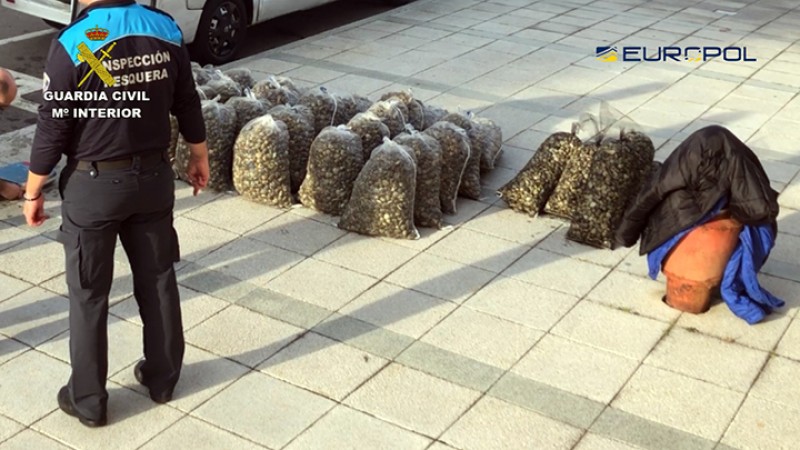The shellfish were being transported in a van from the town of San Antonio Oeste to Mar del Plata, Argentina's main tourist and seaside resort located on the Atlantic coast.
When the vehicle arrived at the intersection of National Routes 22 and 251, police asked the driver to pull over for a routine check. There, the shellfish cargo, divided into 51 packages, was discovered.
A total of 520 kilos of clams, 420 kilos of Pacific geoducks, and 100 kilos of oysters were seized. A single Pacific geoduck can weigh more than 1.5 kilos.
The shellfish were transported without proper refrigeration and had no food safety documentation. Authorities of the National Food Safety and Quality Service (SENASA) destroyed the seized shellfish.
This is not a new phenomenon in the province of Río Negro. In recent years, several shipments of illegally transported shellfish and other food products such as red meat have been seized. In February of this year, more than 5 tons of mollusks were seized from San Antonio Oeste en route to Buenos Aires. At the beginning of September, 600 kilograms of oyster pulp were seized along the same route.
Argentinian health authorities have warned that this type of seafood, especially when the required procedures for their harvest and transport are not followed, can sicken or even kill people who consume them.
"[M]ollusks are highly perishable, require analysis prior to their commercialization to guarantee their safety, and must be transported–together with the sanitary documentation that guarantees their origin, transit, and destination–in authorized vehicles" to be safe to eat, stated SENASA in its report of one of this year's seizures.



